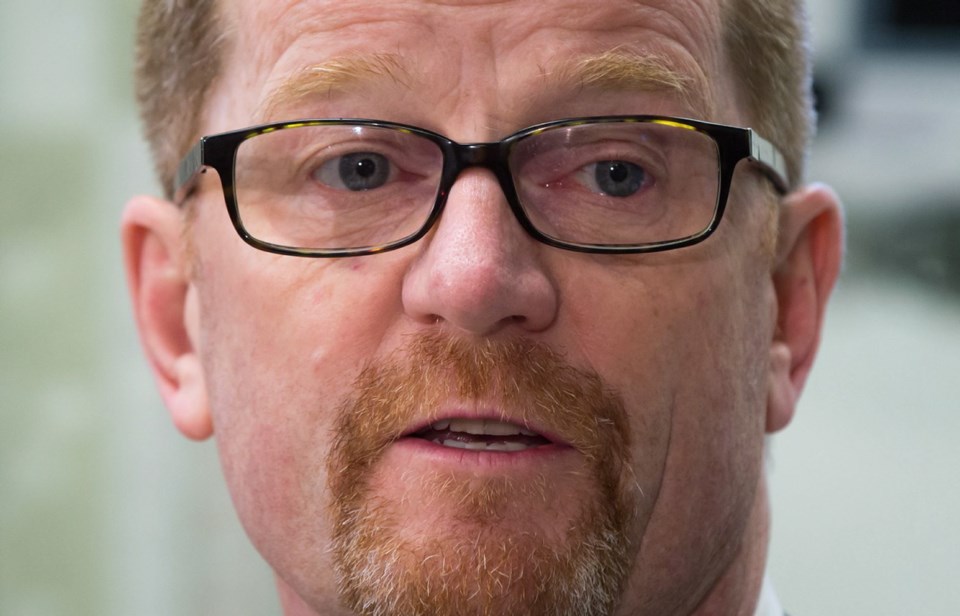B.C.’s health minister is considering having the province’s independent ombudsperson probe the controversial firing of eight drug researchers, but critics say that’s not good enough.
In the face of calls for a public inquiry, which the government fears will be too costly and lengthy, Lake said he is looking at the independent watchdog as a way to get answers.
An investigation by the Office of the Ombudsperson, which can compel evidence and take testimony under oath, would also avoid the inherent conflict if public service members were investigating themselves or deciding with politicians what information was provided, Lake said.
“So we’re doing a lot of work … to see if that would meet the test, if you like, of satisfying the need for more information in a cost-effective and timely way, keep the politicians out of it, and prevent any conflict of interest from members of the public service that have been involved to date,” Lake said.
B.C. NDP Leader John Horgan argued the province’s new ombudsperson, Jay Chalke, a former assistant deputy minister of justice who starts on July 2, would be in the position of investigating his former staff.
“I think that’s a pretty difficult start to a new job,” Horgan said. “It’s not fair to the individuals or the office.”
Horgan also said the time and expense of an inquiry is being blown out of proportion by the Liberal government.
On Wednesday, seven fired Health Ministry employees and the sister of the eighth, who killed himself months after being fired, wrote an open letter demanding a public inquiry into the firings and the suspension of prescription drug research.
In the letter, the researchers call for an inquiry that is independent, has the power to subpoena people and documents, can retrieve deleted documents, has the authority to take statements under oath, and can release its findings to the public when it reports to the legislature.
It was the researchers’ first public statement since allegations of irregular data management and contracting related to the ministry’s pharmaceutical services division were raised in 2012.
Stephanie Smith, president of the B.C. Government and Service Employees’ Union, also rejected the idea of a probe by the province’s ombudsperson. The union represented three of the fired researchers.
“We still hold the position it needs to be an independent third-party public inquiry,” she said
Horgan accused the government of trying to put the scandal to rest for a time.
“What we’ve been asking and what the families have been asking for is independence, and that speaks to a retired judge or a prominent person in the community,” he said.
Kim Carter, who is retiring from the Office of the Ombudsperson, noted that both she and her successor, Chalke, were unanimously recommended by a committee of the legislative assembly that included representatives of both the government and the opposition parties.
“I have no doubts of the independence and impartiality of this office under my leadership and under the leadership of my successor,” Carter said.
The ombudsperson can be asked by a group, individual, ministry or other organization to investigate.
“Those requests are for a broader investigation and report and I consider them carefully but of course we do have limited resources,” Carter said.
Also, under the Ombudsperson's Act, the legislative assembly or a committee of the legislative assembly could refer an investigation to the ombudsperson, and the office would have a statutory obligation to fulfill it.
“It’s only used for matters of significance,” Carter said.
Since the firings, two researchers have been reinstated and four have settled wrongful-dismissal suits with the government. Two cases remain before the courts.
The ombudsperson doesn’t have jurisdiction over matters before the courts, meaning the referral of an investigation to the ombudsperson would have to take that into account.
The government has apologized for the way the investigation was mishandled and for most of the firings.
Marcia McNeil, whose independent review into the firings was released in December, was not able to compel people to testify. She said she was unable to obtain information about who made the decision to fire the researchers and what factors they considered.



